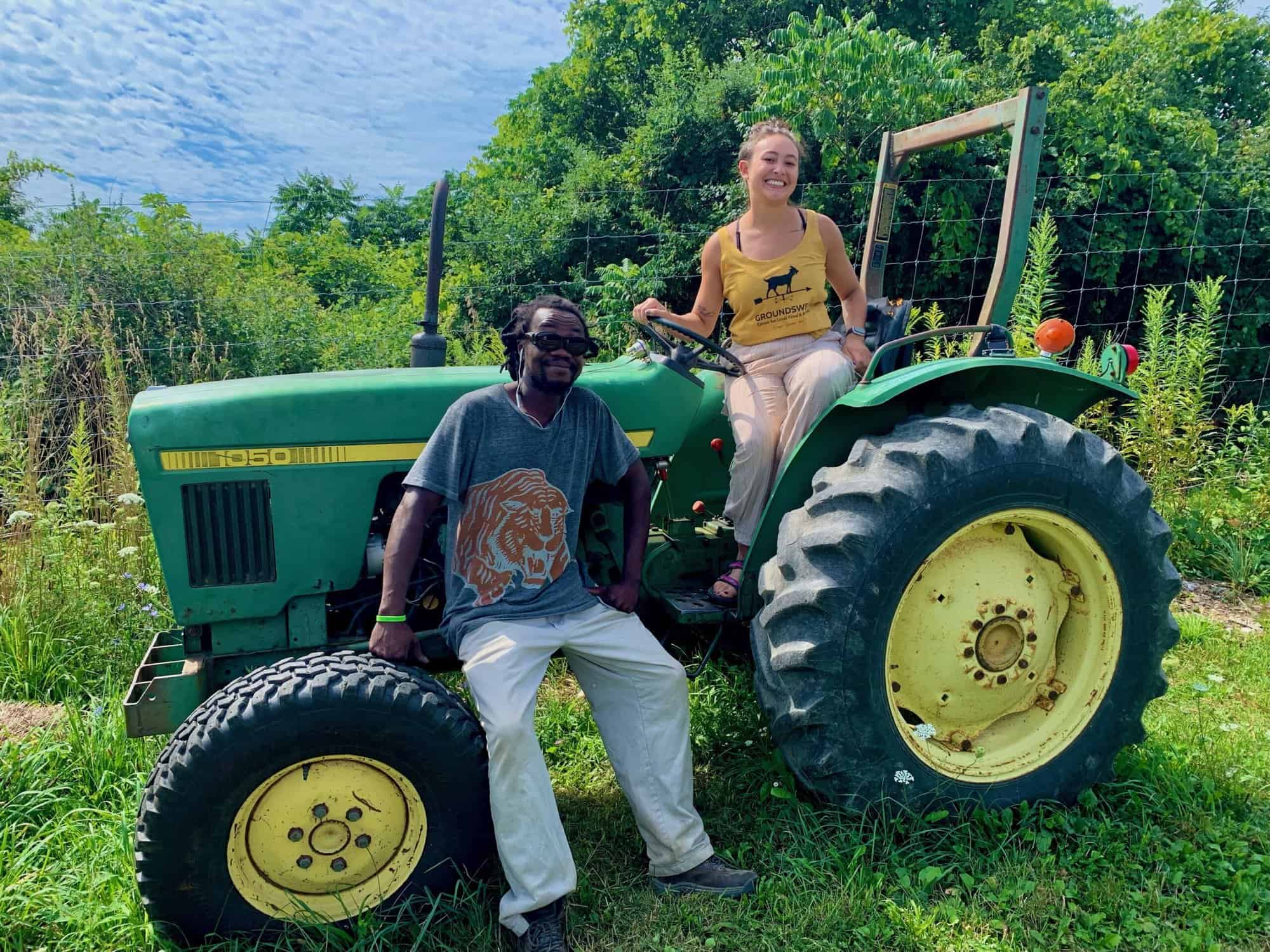Frequently asked questions
About the program:
Groundswell Center's Incubator Farm provides new growers with affordable land, resources, one-on-one guidance, and training to develop their production techniques and business skills.
We're excited to welcome a cohort of up to five new Incubator Farmers in 2024.
The program will begin in April with small group instruction on the theory of agriculture, including topics of soil science, organic growing methods, water management, and climate resilience. There will be a heavy focus on soil health as the foundation for successful growing. The program will also include technical training in irrigation systems, BCS operation, tool maintenance, and more. Farmers will gain the knowledge and technical skills necessary to begin a small farm. Timing of small group training sessions will be adapted to applicants' schedules.
Where is the Incubator Farm located?
The Incubator Farm is located on land leased from Ecovillage Ithaca, a few miles from downtown Ithaca. The address is 100 Rachel Carson Way, off Route 79 West. Visit groundswellcenter.org/the-incubator-farm for detailed directions.
How much of a time commitment is the program?
We understand that most Incubator Farmers have full time jobs and family responsibilities. The timing of training sessions will be adapted to the schedules of the cohort. Beyond the training sessions, farmers will independently care for their plots as their schedules allow. The farm manager will be available intermittently for guidance and assistance.
There will be 4 hours of training sessions per week from April to October. From June to October, farmers should expect to spend an additional 4 hours per week at the farm doing supported farmwork with guidance from the farm manager (when needed). More time at the farm may be needed depending on the scale and complexity of the farm project.
How much land is provided? What else will be provided?
Each farmer is provided with a 1/4 acre plot of farmland, which may be prepared by tillage if desired. The Incubator Farm offers start-up farm infrastructure such as deer fencing, vegetable wash station, walk-in cooler, tools and equipment, and more. Learn more about the farm facilities here and see photos from the farm on our instagram.
What can I grow at the farm?
Incubator Farmers mostly grow vegetables, herbs, and cut flowers. Farmers choose their own path depending upon their interests.
How much farming experience do I need to apply?
This program is open to complete beginners as well as new farmers with some experience. Formal study or farm work experience isn't required. What is required is a commitment to attend training sessions and care for one's plot throughout the season. It's expected that farmers use natural methods to promote soil health and avoid the use of chemical pesticides and fertilizers.
Is this program BIPOC only?
While we consider all applicants to the Incubator Farm Program, we prioritize admission for people of color, immigrants, refugees, and women, trans*, and non-binary people. We aim to build a more diverse farming community by supporting farmers who often experience significant systemic barriers to starting their business. The current Incubator Farmers are a multicultural group with Southeast Asian and South American cultural heritage.


Who is the farm manager?
Yao Foli (Chacha) is an agricultural educator, environmental NGO leader, and community researcher. He has 9 combined years of education in agronomy as well as international studies, and is the founder of Ndor Eco Village (www.ndorecovillage.org), a Ghana-based NGO that works in rural education, sustainable agriculture, and environmental justice. Chacha has lived and worked in the Ithaca area since 2014, including farmwork at West Haven, Stick and Stone, and Sweetland farms. Here's how he describes his school of thought on farming.
"We will be using natural methods without compromise - methods that don't compromise our health, the soil fertility, or the health of the planet. My main focus is conserving soil and maintaining biological activity in the soil. We'll be making good use of what ecology already exists on a micro and macro level to build bounty for future generations.
We're thinking of food as medicine as well. Every plant and vegetable has a purpose, and a role to play in the human body. For them to do their work inside our bodies, they need to be grown with the right process. When we use chemicals to build soil fertility, this damages the natural composition and nutritional value of the plants we grow. But when we use natural methods, we get the benefit of nourishment today while also building fertile soil for the health of future generations."
Think you might be a good fit? Apply by March 1.
Reach out to Yao Foli (Chacha) at yao_foli@groundswellcenter.org with any questions or to discuss the program.
